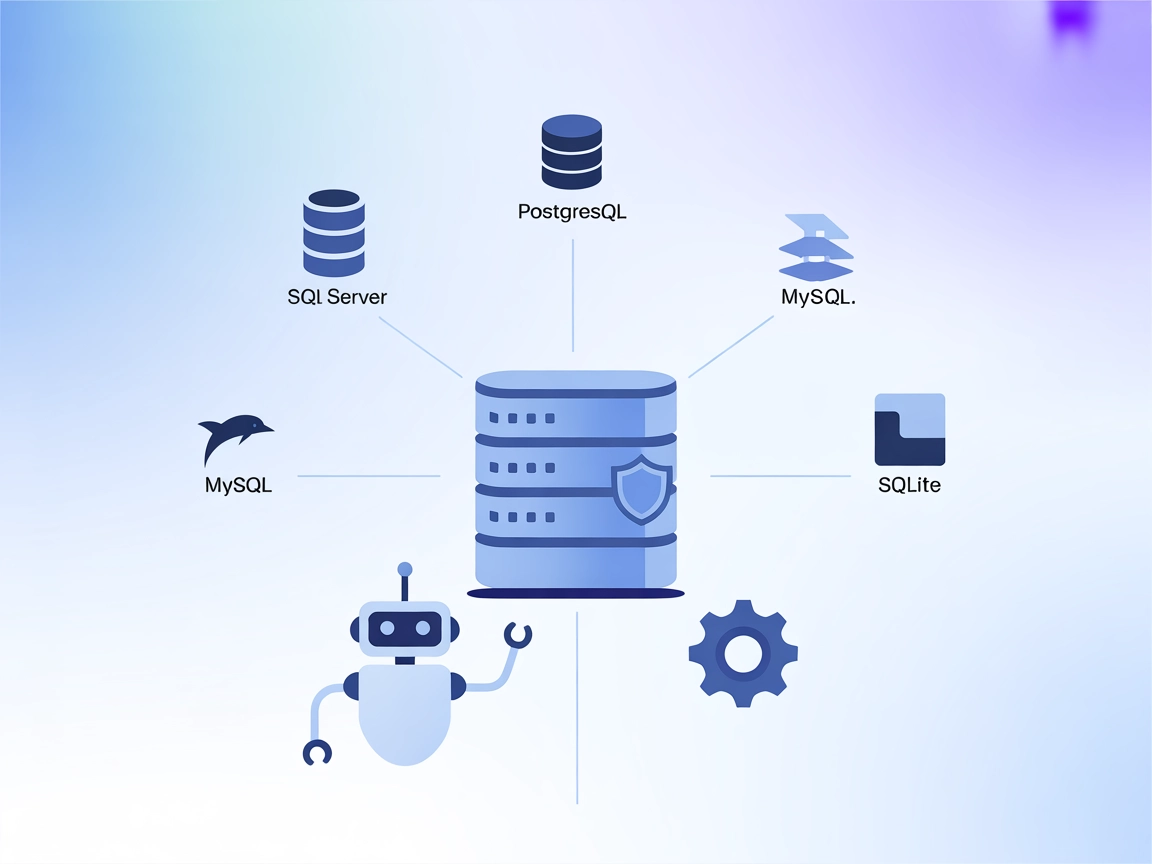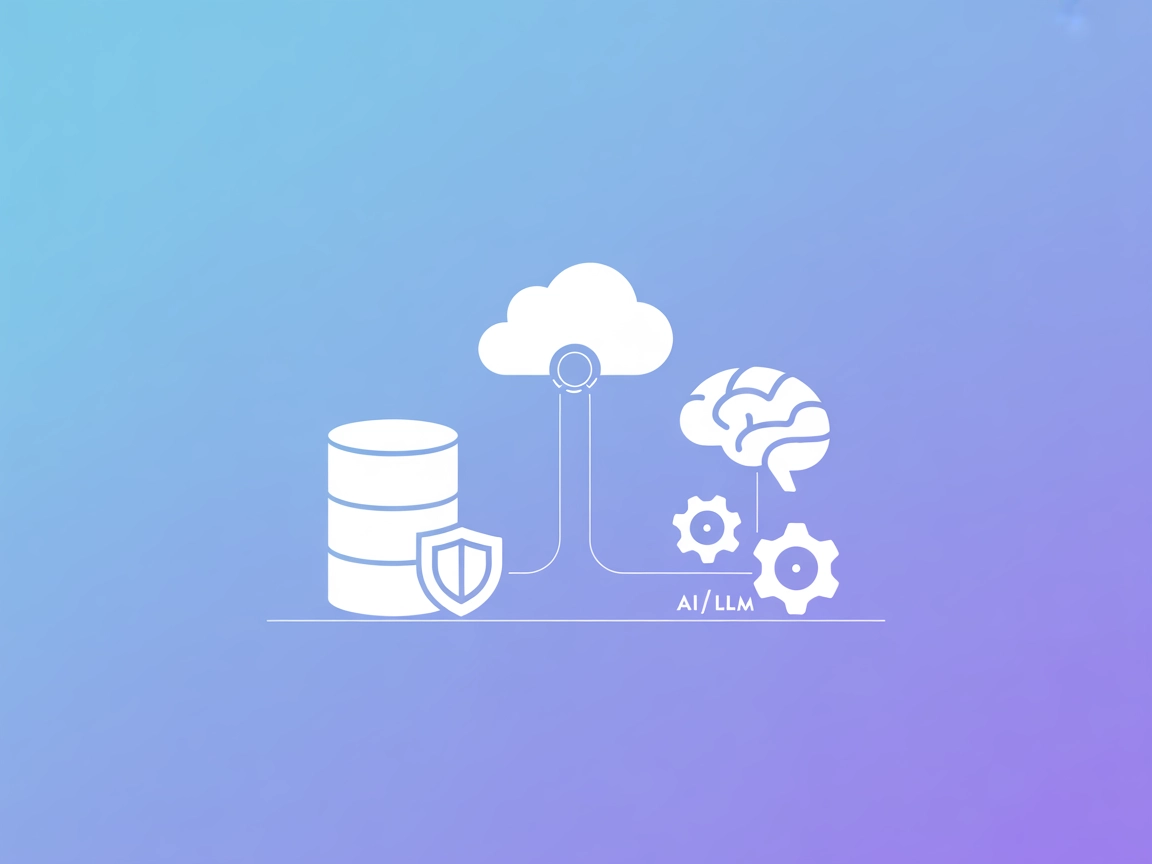
MCP Database Server
The MCP Database Server enables secure, programmatic access to popular databases like SQLite, SQL Server, PostgreSQL, and MySQL for AI assistants and automation...

Integrate Astra DB with AI assistants using the Astra DB MCP Server for secure, automated data access and workflow orchestration.
FlowHunt provides an additional security layer between your internal systems and AI tools, giving you granular control over which tools are accessible from your MCP servers. MCP servers hosted in our infrastructure can be seamlessly integrated with FlowHunt's chatbot as well as popular AI platforms like ChatGPT, Claude, and various AI editors.
The Astra DB MCP Server is a Model Context Protocol (MCP) server designed for seamless integration between Large Language Models (LLMs) and Astra DB, a cloud-native database service. By acting as a bridge, it empowers AI assistants and agentic workflows to securely query, manage, and interact with Astra DB resources. Developers gain the ability to automate complex database operations, retrieve or manipulate data, and handle workloads directly from their AI-driven tools or chat-based interfaces. This enhances productivity by offloading repetitive or intricate database management tasks to AI, while ensuring secure, controlled access to Astra DB’s robust features.
No information available on prompt templates in the repository or documentation.
No explicit list of resources found in the documentation or codebase.
No explicit tool definitions found in server.py or other code files. The repository includes a tools directory and a tools.ts file, but no details are provided in the available documentation.
No setup instructions for Windsurf found in the repository.
claude_desktop_config.json:{
"mcpServers": {
"astra-db-mcp": {
"command": "npx",
"args": ["-y", "@datastax/astra-db-mcp"],
"env": {
"ASTRA_DB_APPLICATION_TOKEN": "your_astra_db_token",
"ASTRA_DB_API_ENDPOINT": "your_astra_db_endpoint"
}
}
}
}
{
"command": "cmd",
"args": ["/k", "npx", "-y", "@datastax/astra-db-mcp"]
}
Securing API Keys:
Store sensitive values like ASTRA_DB_APPLICATION_TOKEN and ASTRA_DB_API_ENDPOINT in the env section of your MCP server config.
No setup details found for Cursor in the provided files.
No setup details found for Cline in the provided files.
Using MCP in FlowHunt
To integrate MCP servers into your FlowHunt workflow, start by adding the MCP component to your flow and connecting it to your AI agent:

Click on the MCP component to open the configuration panel. In the system MCP configuration section, insert your MCP server details using this JSON format:
{
"astra-db-mcp": {
"transport": "streamable_http",
"url": "https://yourmcpserver.example/pathtothemcp/url"
}
}
Once configured, the AI agent is now able to use this MCP as a tool with access to all its functions and capabilities. Remember to change “astra-db-mcp” to whatever the actual name of your MCP server is and replace the URL with your own MCP server URL.
| Section | Availability | Details/Notes |
|---|---|---|
| Overview | ✅ | Description available |
| List of Prompts | ⛔ | No prompt templates found |
| List of Resources | ⛔ | No explicit resources listed |
| List of Tools | ⛔ | No explicit tool definitions in docs or code |
| Securing API Keys | ✅ | Example provided in README |
| Sampling Support (less important in evaluation) | ⛔ | Not mentioned |
Based on the tables above, the Astra DB MCP Server offers a clear overview and secure API key management with some practical use case suggestions. However, it lacks documentation or code references for prompt templates, defined resources, and explicit tool listings. Sampling and Roots support are not described. This makes it suitable for users already familiar with Astra DB, but less accessible for those seeking out-of-the-box LLM prompt and tool interoperability.
Rating: 4/10
| Has a LICENSE | ✅ (Apache-2.0) |
|---|---|
| Has at least one tool | ⛔ |
| Number of Forks | 15 |
| Number of Stars | 26 |
The Astra DB MCP Server is a Model Context Protocol (MCP) server that enables seamless, secure integration between Large Language Models (LLMs) and Astra DB. It allows AI agents to query, manage, and automate database tasks directly from chat-based or agentic workflows.
It supports AI-powered database querying, automated data management (insert, update, delete), integration within AI development workflows, data analysis by LLMs, and orchestrating Astra DB alongside other APIs for complex workflows.
Store sensitive values like ASTRA_DB_APPLICATION_TOKEN and ASTRA_DB_API_ENDPOINT in the `env` section of your MCP server configuration. This ensures your credentials are not exposed in client code or logs.
No, the current documentation and codebase do not provide prompt templates or explicit tool definitions. You may need to design custom prompts and tools for your workflow.
It is ideal for developers and teams who already use Astra DB and want to automate or enhance database workflows with AI. Some technical familiarity with configuring MCP servers and Astra DB is recommended.
Automate database management and querying by integrating Astra DB with your AI agents via the Astra DB MCP Server. Streamline workflows and unlock powerful data-driven capabilities.

The MCP Database Server enables secure, programmatic access to popular databases like SQLite, SQL Server, PostgreSQL, and MySQL for AI assistants and automation...

Integrate the StarRocks MCP Server with FlowHunt to enable AI agents to query, manage, and visualize StarRocks databases securely and efficiently—no complex cli...

The MongoDB MCP Server enables seamless integration between AI assistants and MongoDB databases, allowing for direct database management, query automation, and ...
Cookie Consent
We use cookies to enhance your browsing experience and analyze our traffic. See our privacy policy.